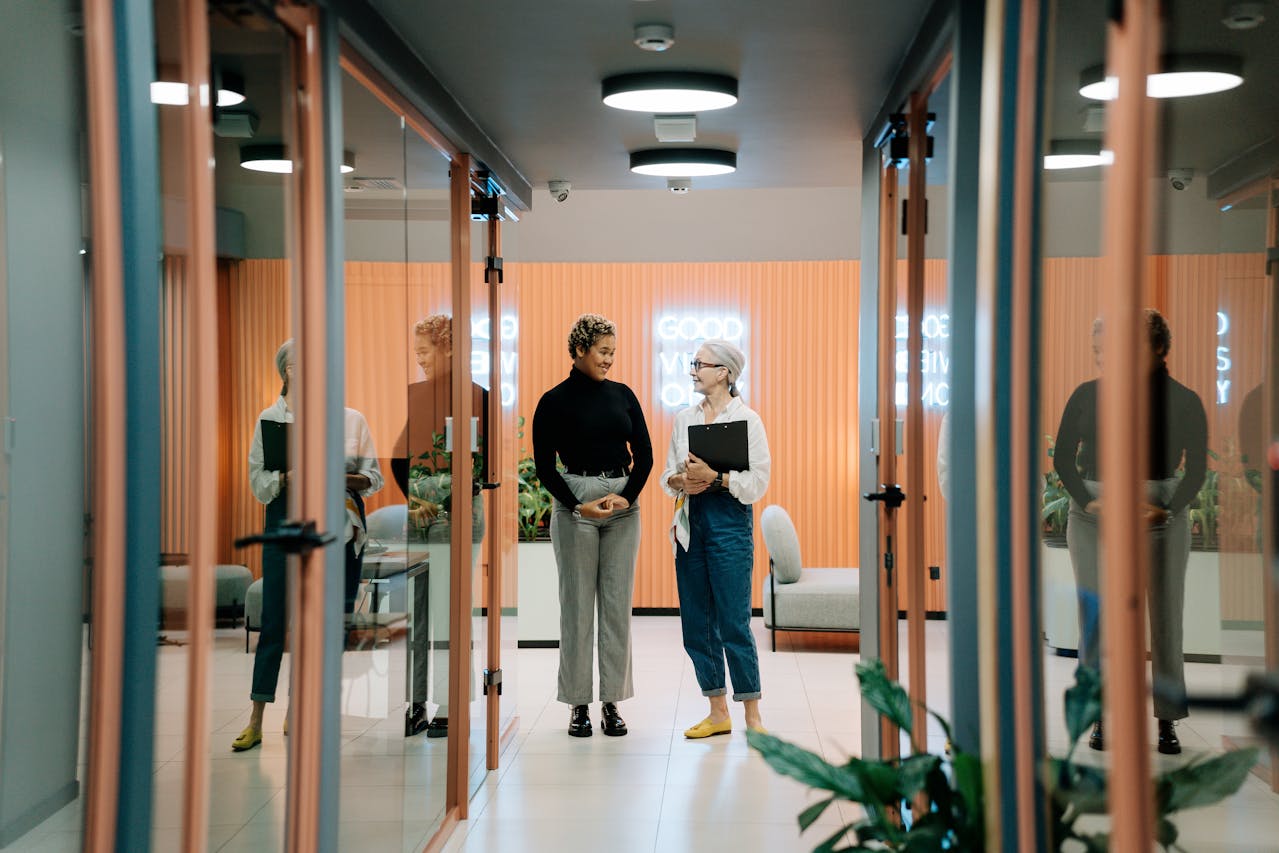Interview with Caroline Loisel, co-author of the “Guide du futur des RH et du management” (Eyrolles edition) on this new year.
Usually, at the beginning of the year, the low-signal microscope and crystal ball should be released for the article season and other forums on future HR predictions and trends.
Except that after the exceptional year we have just experience, things seem a little clearer for 2021.
The global pandemic has caused shock to most organizations, causing latent trends to suddenly emerge, which would only have happened much later otherwise.
We discuss with Caroline Loisel, speaker, trainer, and co-author of the “Guide du futur des RH et du management” published at Eyrolles.
She thus perceives 4 weak signals for 2021. A term she prefers to “trend”, “because nothing says it will be durable and will be anchored in time.”
1. Teleworking, a new expression of ego and corporate power
According to her, work from home, which has spread to a never-before-reached level in France because of COVID, acts as a form of Trojan horse in companies.
I have been working in new technologies for over 20 years, and what struck me when I started my own business was the number of people who had psychological blockages and limiting beliefs on the subject. Before, those working without digital could master everything: the production chain and the expected results. Digital has reshuffled the cards, but these people thought they could replicate this hyper-mastery…” she says.
And with the obligation of teleworking, all these blockages have shattered and facilitated the progress of a form of distributed management.
The rules of communication changed overnight. With video conferencing tools, everyone appears in an identical-sized thumbnail. As if that flattened power!”, notes Caroline Loisel.
However, the game is far from won and the culture of telework, like that of presenteeism, is not yet established in France.
As the mobility index of the Citymapper application indirectly demonstrates, comparing travel in cities over a given period of time with their usual level.
Last September, while New York, Amsterdam and Copenhagen had much less mobility than usual (27%, 37% and 41% respectively), the French cities of Paris and Lyon had almost returned to their cruising pace (92% and 100%) … and held at the extreme of the list!
“Exceptional” traffic today in the Ile-de-France. Too few companies allow teleworking despite the alarming health situation
Citizens, restaurants, and cafes are being asked to work hard, but employers are clearly not playing the game…
I realized that overall, half of managers are against teleworking in France and that it is really a societal issue. They see it as a matter of comfort and reinsurance. They think that they will be able to better monitor their employees in person, which is false, unless standing behind each computer screen. It is still a limiting belief to say that because you have the person in front of you, you are going to monitor them. And that is why I say that power and ego are linked,” she says.
2. The era of authenticity and emotional intelligence
Caroline Loisel speaks of a carapace culture generally practiced in companies. In other words: when a person enters working life, they go from individual to employee and must put their emotions aside.
Again, a habit that has been strained since the pandemic. When the worst brings out the best in us.
With the period, it is now a good idea to ask for news outside the “How’s it going at your job?”, she said. We have less of a choice today because loved ones can be affected, so there is more room for the true and the authentic, to be in sincerity and solidarity. But the question is, will we ever accept more of our vulnerabilities at work?”
3. Agility… by obligation
Caroline Loisel remembers a HRD from a large group who told her last year, “We have never been so agile since the crisis…and without a method!”
For the trainer, agility means knowing overall how to go fast and finding ways to react quickly.
The pandemic left companies no choice but to trust and delegate, by adopting a much shorter decision-making circuit and giving back autonomy to the teams. If it lasts…
4. A growing quest for meaning
Finally, the last element to note for 2021: the ever more important search for meaning. From employees’ point of view, the question is becoming more and more important with the fusion of personal and professional lives.
During the crisis, we realized that the problem was paradoxically not to work… but rather to disconnect!”, explains Caroline Loisel. “Many could not stop, had no limits, and could not self-regulate. With the question that came up at one point, is this the life I want?”
For her, the future will be marked by a word: hybrid. The “OR” will give way to the “AND”, to the harmony of opposites.
Telework OR office work will be, in the future, telework AND office work AND work in a shared space, etc. This will lead to another question: the place of residence.
It only takes two days of remote work to start asking yourself the question,” she confirms.
Similarly, organizations will need to think Business AND Human AND Environmental Awareness.
And in these progressive transformations, the HR function will not only have to take on a support role but also… an agent of change!




